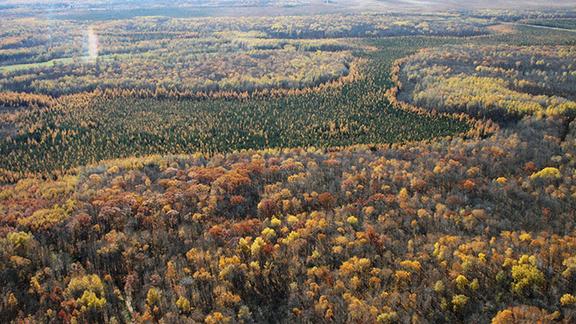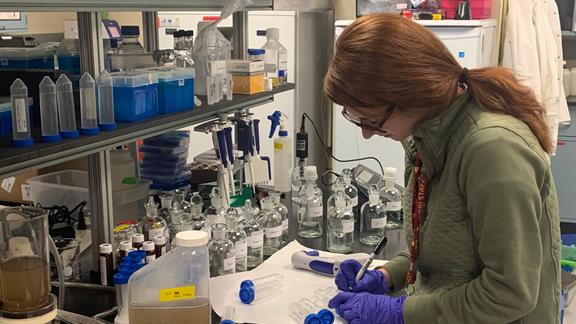Seeking to understand Minnesota's forest landscapes and ecosystems.
Platform Overview
The Applied Ecology and Resource Management Platform seeks to understand the world we live in and how to minimize our impacts. Comprised of our Forest and Land and our Water Research Groups, these scientists bring together decades of research and expertise in their respective fields.
NRRI was established by the Minnesota State Legislature to address the challenges of an economy largely built on the natural resources of the state. Can we manage the water and forest resources in a sustainable way that allows for efficient use of the resources by humans and wildlife? What remediation strategies make sense to improve degraded ecosystems? We address these challenges and opportunities through the following programs:
Research Programs

Developing hybrid poplar with superior growth and disease resistance for Minnesota’s emerging bioeconomy.

Developing science-based tools, materials and technologies to assess and protect our freshwater resources.
Featured Research Projects

The goal of this project was to develop a model that predicts potential beaver dam locations based on stream channel, watershed and habitat characteristics.

The ForCAST tool attempts to provide forestry professionals and land managers with an opportunity to evaluate how a changing climate and changing markets might affect Minnesota’s forests and

The Minnesota Fisher Den Box Project is focused on evaluating an emerging habitat management tool to address the declining MN fisher population.
Recent News

From the tree tops to boots on the ground, this avian ecologist enjoys his role in informing forest management

More than ‘just the facts,’ researchers lean into ‘acts’ and ‘pacts’ to address challenges of a changing world

Temperatures and habitat changes push species into ‘Zone of Sympatry’ with northern cousins.

NRRI cross-disciplinary research explores availability of food sources for declining species of bug-eating birds.

NRRI’s early data analyses show surprising concentrations in the deep middle of lake, not just near shore




